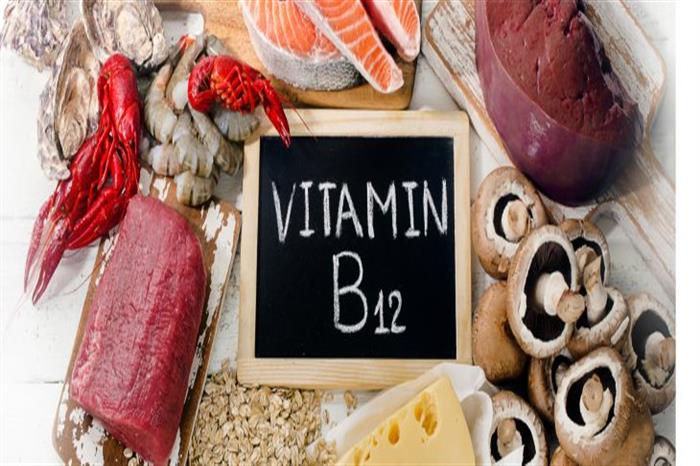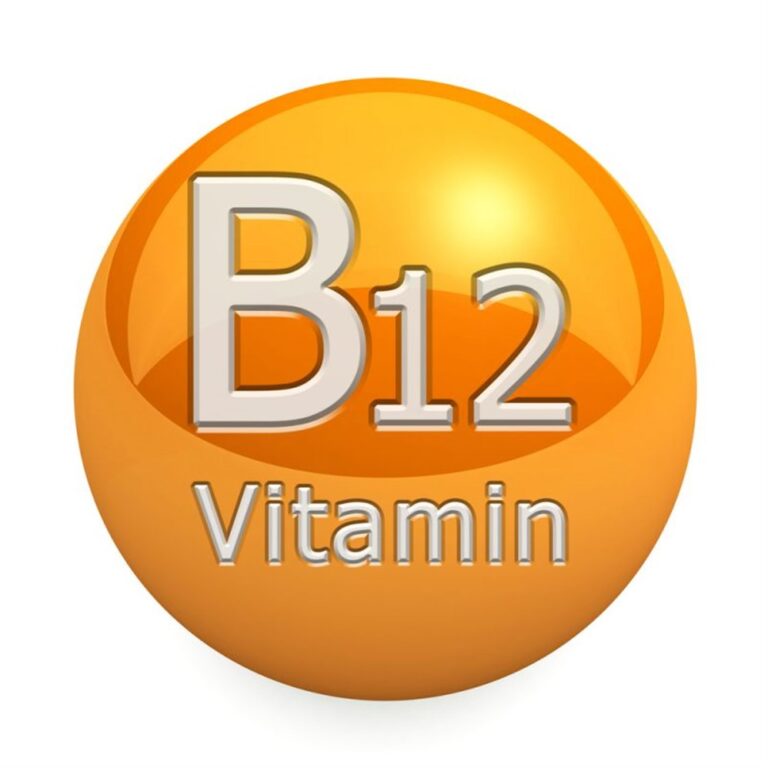Vitamin B12 (also called cobalamin) is an essential water-soluble vitamin that your body needs but cannot make on its own. It must be obtained from food or supplements to support vital bodily functions.
🧠 1. Supports Brain and Nervous System Health
Vitamin B12 is crucial for maintaining healthy nerve cells and may play a role in protecting cognitive function. It helps in the synthesis of myelin, the protective sheath around nerves that promotes efficient nerve signaling.
Benefit:
- Helps protect nervous system integrity
- Supports mental clarity and may reduce neurological symptoms
🩸 2. Essential for Red Blood Cell Formation and Preventing Anemia
Vitamin B12 plays a key role in producing red blood cells and DNA synthesis. Adequate levels help prevent megaloblastic anemia—a condition in which red blood cells are too large and dysfunctional, leading to fatigue and weakness.
Benefit:
- Promotes healthy blood cell production
- Reduces risk of anemia and related fatigue
❤️ 3. May Help Regulate Homocysteine and Support Heart Health
Vitamin B12 helps lower levels of homocysteine — an amino acid associated with increased risk of heart disease. Although lowering homocysteine doesn’t guarantee reduced heart disease risk, B12 plays a role in this metabolic pathway.
Benefit:
- Helps metabolic processes linked to heart health
💡 4. Supports Energy Production (Indirectly)
B12 participates in converting food into usable energy by helping metabolize fats, proteins, and carbohydrates. While B12 itself isn’t a stimulant, low levels can lead to slow metabolism and fatigue.
Benefit:
- Aids metabolic energy processes
- Helps reduce fatigue from deficiency
🔬 5. DNA Synthesis and Cell Health
Vitamin B12 is involved in DNA creation and new cell formation, which is important for growth, repair, and overall health.
Benefit:
- Supports growth and cellular function
- Important for reproductive health and cell integrity
🧬 6. Possible Support During Pregnancy
Adequate B12 is important for proper fetal development and neurological formation. While more research continues, B12 is generally recommended for pregnant women to support growth and development.
Benefit:
- Helps support healthy pregnancy outcomes
🥩 Top Sources of Vitamin B12 (Backed by Evidence)

Vitamin B12 is mainly found in animal-based foods or fortified products.
📌 Natural Food Sources:
- Fish & seafood such as salmon, tuna, and clams — rich in B12 and other nutrients.
- Liver and organ meats — extremely high in B12 per serving.
- Eggs and dairy like milk, yogurt, and cheese.
📌 Fortified Sources (esp. for vegetarians/vegans):
- Fortified cereals
- Fortified plant-based milk (e.g., soy, almond)
(Some may provide significant percentages of daily B12 needs.)
🧠 Who May Need Extra B12?
Certain people are more at risk of low B12 levels:
- Vegetarians & vegans (plant diets lack natural B12).
- Older adults (absorption decreases with age).
- People with digestive disorders affecting absorption.
Vitamin B12 is a vital nutrient that supports brain function, nerve health, red blood cell production, DNA synthesis, and energy metabolism. By getting enough B12 from quality foods — or supplements when needed — you help build a foundation for long-term health backed by scientific evidence.
